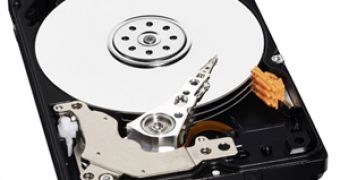It appears that a certain, major acquisition is not proceeding as smoothly as some may like, now that the European Commission has become involved in a less than favorable fashion.
Some time ago, Western Digital announced that it had reached an agreement with Hitachi Global Storage Technologies that enabled the former's total acquisition of the latter.
Unfortunately, things aren't going along quite as planned, as the European Commission has issued a statement of objections regarding the proposal.
Potential effects on the competition are the main questions raised, since the transaction would reduce the number of major HDD makers from five to three.
The complaint is not an actual prohibition, however, as it only means that recipients will have to present their arguments as to why there should be no such worries.
For those that want more details on the happenings on the HDD market, small providers have been backing out while bigger ones have been buying the assets of others.
Toshiba is the only major player that did not seal any buyout deals, leaving Western Digital and Seagate to duke it out.
Not long after WD said it would buy HGST (deal set to close by fourth quarter, 2011), Seagate announced that it will buy Samsung's HDD division.
Once the deals are closed, WD will have 50% of the market, Seagate will hold 40% and Toshiba will retain the remaining 10%.
What caused such shifts in such a short time, by industry standards, is the declining shipment levels of HDDs in front of the evolving SSDs (solid state drives).
Now that SSDs are narrowing the capacity gap and also becoming less expensive, not to mention so much faster, HDDs aren't as prominent as they used to be.
The majority of PCs and enterprise systems still use HDDs now, but the situation is set to change over the next few years, hence HDDs players' decisions to secure as great a market share as possible in advance.

 14 DAY TRIAL //
14 DAY TRIAL //